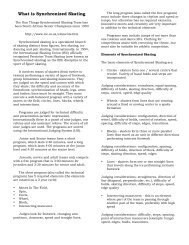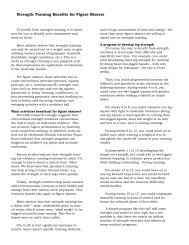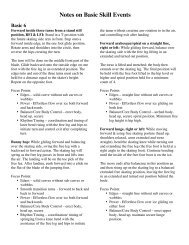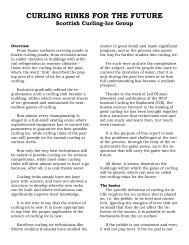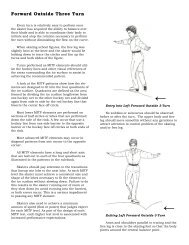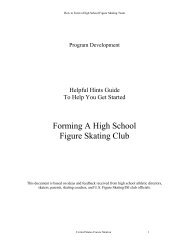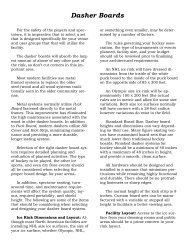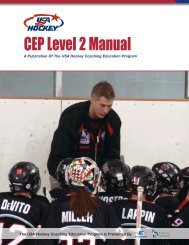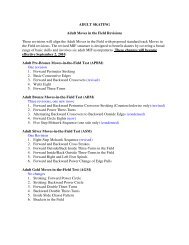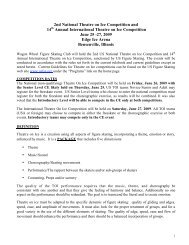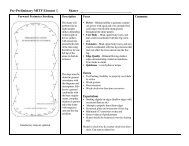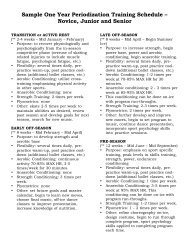CEP Level 3 Manual - Rushmore Hockey Association
CEP Level 3 Manual - Rushmore Hockey Association
CEP Level 3 Manual - Rushmore Hockey Association
You also want an ePaper? Increase the reach of your titles
YUMPU automatically turns print PDFs into web optimized ePapers that Google loves.
T A B L E O F C O N T E N T SChapter 4Mental Preparation for Peak PerformanceOBJECTIVES• Identify a players peak performance• Identify skills and attributes• Describe strategies for peak performanceIntroductionThis chapter is designed to examinepsychological strategies for mentally preparingathletes for peak performance. To accomplish thisobjective, a pyramid model of peak performance ispresented and discussed. Components of themodel include: (1) foundational or psychologicalmake-up and performer personality factors; (2)psychology of peak performance strategies; and (3)coping with adversity strategies. Within eachcomponent of the model a variety of mentalpreparation skills and strategies are examined. It isargued that for athletes to consistently achieve peakperformance, psychological skills and strategieswithin each of the three components must bedeveloped and continually refined.Mental Preparation for Peak Performance“I had a lot of rituals in terms of getting dressed.At the building I had a lot of rituals about how I gotdressed or the route I would take to the arena or theice … I follow an order … I think the order is what’simportant at a very stressful time or at a competitivetime.” [National Champion figure skater (Gould,Finch & Jackson, 1993, page 459)].“I felt ready, I felt prepared … My approach wasbasically win or take me off on a shield. I was eithergoing to win the match or they were going to carryme off. So I was very positive. I wasn’t going tohold back at all.” [Seoul Olympic wrestler (Gould,Eklund, & Jackson, 1992, page 368)].“Acknowledging that you were nervous. Usingyour nervous energy in a positive way. That wastotally effective. To acknowledge it first of all.Instead of saying, “no I’m fine,” and then going upand totally freaking out, you just say, “I think I’m o.k.I’m just really anxious to get out there and use it.Don’t let it just totally screw you up.” Everybodygets nervous. It’s just who handles nerves the best.”[National Champion figure skater, (Gould et al.,1993, page 459)].“I was focusing on his style, what he liked to do,the pace of his wrestling, what side he leads on,what he likes to do as far as inside position … So Iwas focusing on what I could do, for me it waspicking up the pace on him, staying inside, trying topush him harder than he wanted to be pushed, butat the same time I wanted to be fairly under controland conservative … [National Champion figureskater, Gould et al., 1992, page 369].Sport Psychology | 33



